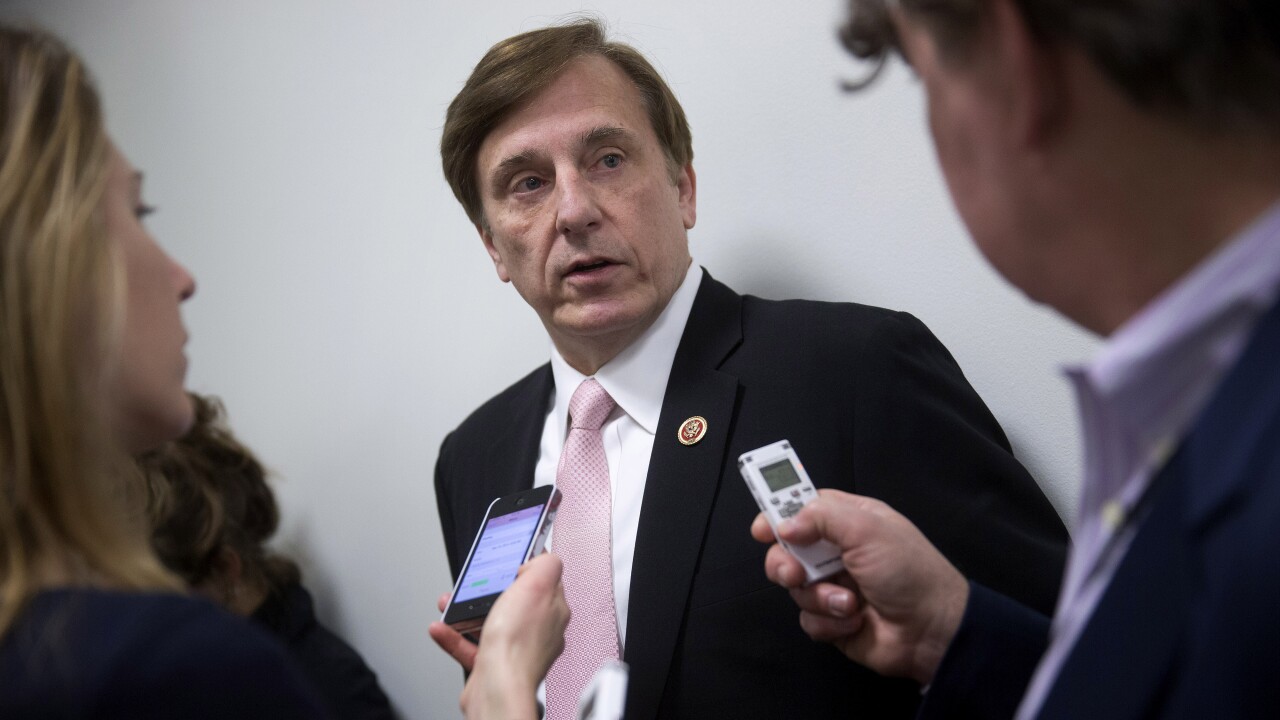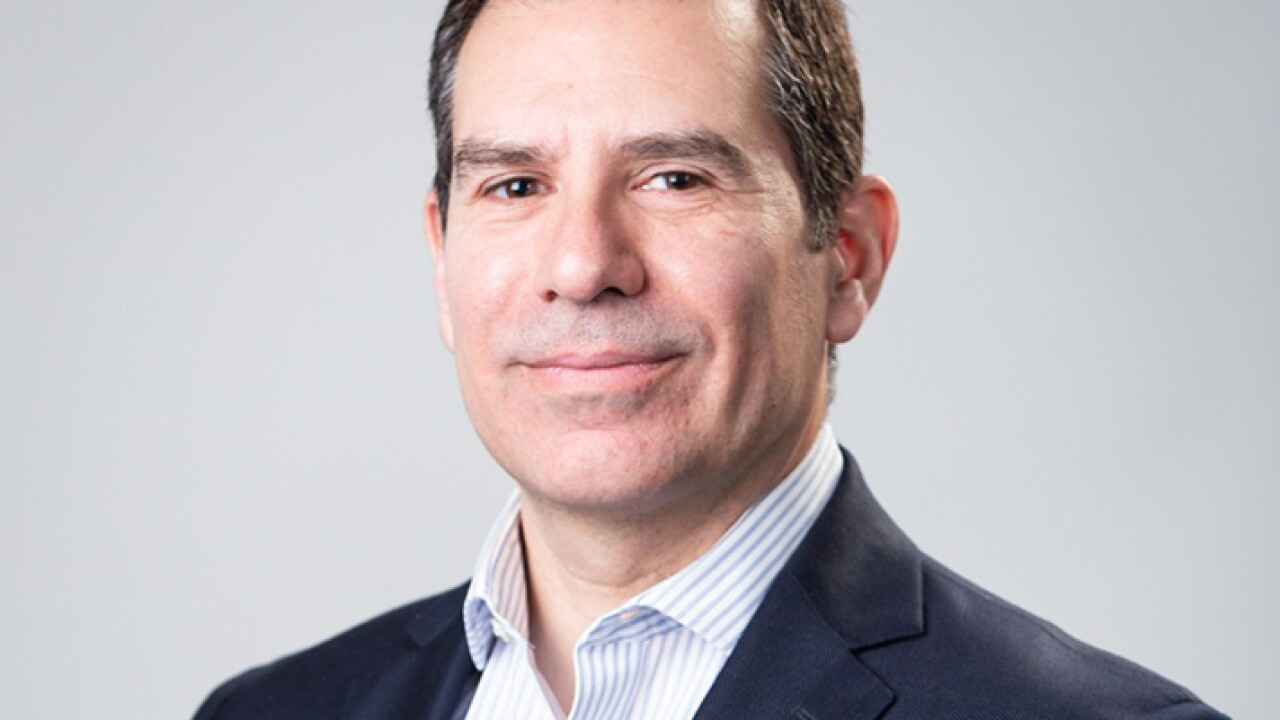Citigroup Inc. said yesterday that it will continue to cut costs, reduce risk, and shed troubled assets while it eyes opportunities to increase U.S. deposits.
The $2.1 trillion-asset New York company says this approach is necessary to shore up losses in the domestic credit markets, and one that could help position it as a U.S. retail banking leader once the dust settles from the financial and economic meltdown.
Citing $4.4 billion of writedowns and $4.9 billion of credit losses, Citi said it swung to a third-quarter loss of $2.8 billion, or 60 cents a share, compared with a profit of $2.2 billion, or 44 cents a share, a year earlier. The loss was its fourth in as many quarters, but two weeks ago Gary Crittenden, Citi's chief financial officer, had said the company could report a loss of up to $5 billion.
In an interview Thursday, Crittenden blamed "a fundamental deterioration in credit" for the most recent loss. He cited higher consumer credit costs, disruption in the fixed-income markets, and "a general economic slowdown."
Citi recorded a net loss of $3.4 billion, or 71 cents a share, from continuing operations, compared with a profit of $2.1 billion a year earlier. Revenue dropped 23%, to $16.7 billion.
Badly bruised by losses on mortgage-related securities - it has written down more than $40 billion in the past year - Citi said such losses are slowing as it winds down soured investments. But losses tied to other kinds of consumer loans - primarily credit cards - are piling up. And as the economy continues to slow, Citi expects the problem to worsen.
Its global credit card business, profitable a year earlier, lost $902 million in the third quarter as revenue plunged 40% on slowdowns in the United States, Brazil, and India. Its consumer banking division, also profitable a year earlier, was beaten up by credit problems and lost $1.1 billion in the quarter.
Crittenden said on a call with analysts Thursday that his company is bullish on international growth in general, including in Korea and other parts of Asia, but domestic troubles will remain in focus as long as the economy is weak.
Citi is "actively" managing credit card risk, in particular, to minimize losses, he said. "So as clients accounts come up for renewal ... we do an active evaluation of that, and in some cases we size them down. In some cases, we eliminate them altogether. ... We have taken a very hard look at customer profitability."
Isabel Schauerte, an analyst for Celent, a Boston market research unit of Marsh & McLennan Cos., said in an e-mail that Citi's consumer struggles are a "manifestation that the misery has spread beyond investment banking units and into banks' customer divisions."
Crittenden said Citi trimmed expenses by $1.2 billion in the third quarter, largely through job cuts. The company said it reduced its overall head count by 11,000, or about 3%, in the third quarter. It has shed 23,000 jobs overall this year.
It also has shed weaker assets, including retail branches in Texas and Nevada, and it plans to sell its German retail arm this year. Total assets have declined by $50 billion since the end of the second quarter and by more than $300 billion over the past year.
Citi executives did not cite specific figures, but they said cost cuts and asset reductions would continue, enabling the company to maintain a strong Tier 1 capital ratio of 8.2% and allowing it focus on expanding strong businesses, both domestically and internationally.
"We are making excellent progress on the parts of our business we control, including expense reduction, head count, and balance sheet and capital management," Vikram Pandit, Citi's chief executive officer, said in a press release. "We expect these improvements will enable us to realize the full earnings power of our franchise as the economy stabilizes."
Citi did not give a target date for its return to profitability. Analysts say they are skeptical about a quick turnaround.
"Given the worrisome macroeconomic indicators in the U.S., we feel Citi could likely face higher credit costs for the next several quarters," David Hendler, an analyst at CreditSights Inc., wrote in a research report Thursday.
Citi's credit provision doubled from a year earlier, to $8.9 billion.
Crittenden said that, for all its struggles, Citi's strong capital position makes it a relatively healthy player in the United States. Domestic retail and corporate deposits increased 11% from a year earlier, reflecting in part "a flight to quality."
He also suggested that Citi, which lost its fight with Wells Fargo & Co. over Wachovia Corp. last week, had the wherewithal to buy the Charlotte company and would consider a similar deal if one arose. Buying Wachovia's banking operation would have nearly tripled Citi's U.S. deposits, to more than $600 billion.
"If a high-value franchise became available, and the risk was contained, and it helped us with our deposit base in the U.S., we would certainly look at it," Crittenden said.
Some analysts say a federal plan to invest $250 billion in U.S. financial companies, including $25 billion into Citi, could further boost its interest in deals. Mike Mayo, a Deutsche Bank AG analyst, wrote in a note Tuesday that the plan would give Citi "the equity to buy a regional bank."
Analysts said that even though Citi has a massive global deposit base - about $800 billion - it needs to ramp up its U.S. deposits dramatically, not only to buffer its domestic funding sources as the global economy weakens, but also to put it back in league with a narrowing pool of U.S. retail powers. This includes Wells, Bank of America Corp., and JPMorgan Chase & Co., which acquired Washington Mutual Inc.'s banking operation last month. Each of the three companies has more than $500 billion of U.S. deposits.
"With Wachovia out of the picture, there is no doubt ... [that Citi] will pursue another acquisition," Schauerte said. But its latest results also "suggest that the bank should focus on repairing its troubled balance sheet while waiting for another buying opportunity that has the scale Citi is hungry for."





